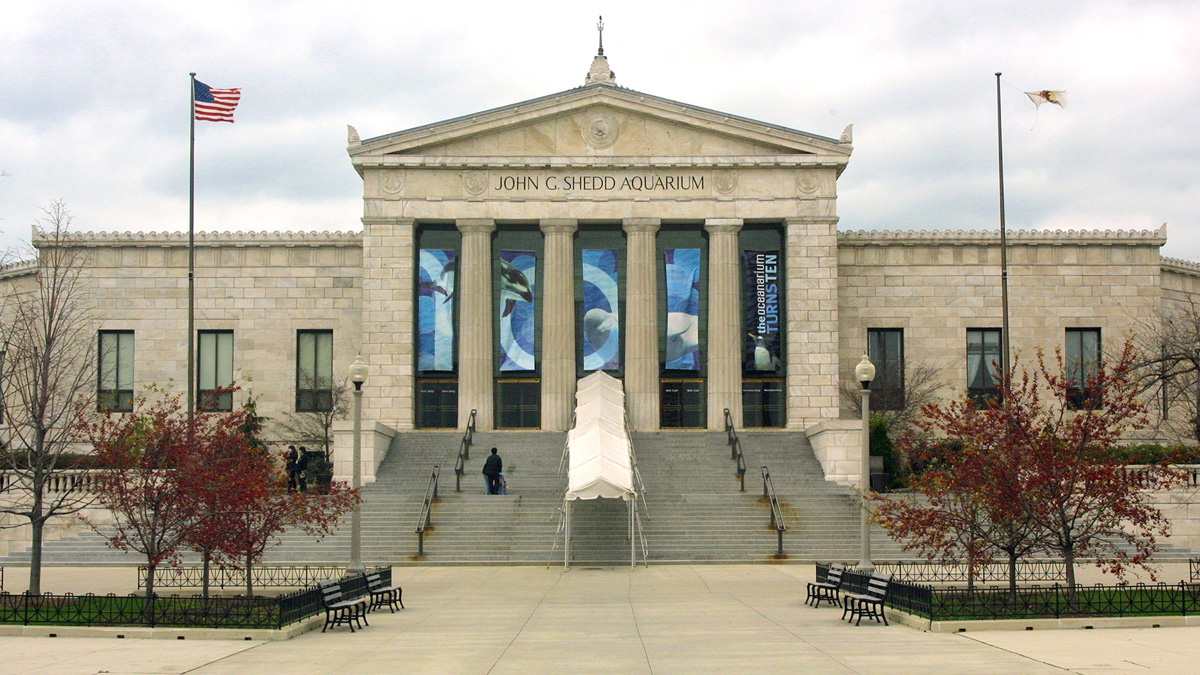A Chicago-based addiction treatment center, which like others nationwide has faced fierce opposition to opening suburban branches, filed a federal lawsuit Tuesday to force one suburb to stop blocking its expansion plans.
The suit brought by the Haymarket Center, the largest nonprofit treatment service in Chicago, says the city of Itasca’s rejection of a 240-bed facility in a former hotel violates U.S. laws, including the Americans with Disabilities Act, that bar discrimination against those recovering from addictions.
Elsewhere, including in Florida, Massachusetts, New Jersey and Michigan, communities have also thwarted the opening of such facilities. Treatment advocates say the resistance highlights how everyone seems to recognize the need for the facilities amid the ongoing opioid crisis — but bristle at putting them in their neighborhoods.
In November, the Centers for Disease Control and Prevention said drug overdoses spiked during the pandemic, registering over 100,000 overdose deaths from April 2020 to April 2021 — a U.S. record for a 12-month stretch. It was an increase of nearly 30% from the roughly 78,000 deaths for the same period the year before.
Feeling out of the loop? We'll catch you up on the Chicago news you need to know. Sign up for the weekly Chicago Catch-Up newsletter here.
Many residents in Itasca, a middle-class community of 9,000, mounted a two-year battle against the Haymarket facility, saying they feared it would lead to an uptick in crime and lost tax revenue, as well as strain Itasca’s one-ambulance emergency service.
Some in Itasca and from nearby suburbs supported the plans, saying a dearth of facilities makes treatment for suburbanites less accessible.
Opponents held multiple street protests. During one in 2019, a supporter of the facility, Felicia Miceli, held a photo of Louie Miceli, her son who died in 2012 of a heroin overdose at 24, as marchers passed.
Local
“There were people who approached me and would say, ‘Sorry for your loss, but we don’t want it here,’” she recalled Tuesday in a phone interview with The Associated Press. “Other people glared at me.”
She added: “I don’t want to hold up a picture of my beautiful son who is gone. But it’s necessary.”
Miceli, who also founded a treatment advocacy, believes increased isolation during the pandemic explains the rise in overdoses. She said she has gone to a funeral or wake of someone who overdosed every few weeks for the last four months.
“The opposite of addiction is connection,” she said. “And those connections have been lost during COVID.”
The lawsuit alleges Itasca officials “strategically fostered, intentionally contributed to, and were unduly negatively influenced by this ‘not in my backyard’ opposition.” It accused them of seeking pretexts to reject the proposal amid “discriminatory stereotyping of Haymarket’s mission” and the patients it would serve.
Village Administrator Carie Anne Ergo declined to comment on Tuesday.
After some 35 hearings, Itasca’s plan commission and board voted unanimously late last year against approving Haymarket’s plans.
The lawsuit says Haymarket went out of its way to address some of Itasca’s concerns, including by agreeing to contract a private ambulance to respond to calls from the treatment facility.
Before Tuesday’s filing in Chicago federal court, Itasca Mayor Jeff Pruyn denied discrimination underpinned opposition, saying the proposed facility didn’t comply with criteria applied to everyone.
Pruyn said at a hearing before votes against the plans that his primary concern was a financial one. He contended that Itasca, one of the region's smallest communities, “was going to have to absorb 100% of the cost, risk and burden of servicing a facility ... accepting residents beyond Itasca.” He said he ultimately concluded that “Haymarket’s request on our village is unreasonable.”
Interest in the plan in Itasca was intense from the start. One early hearing at a high school gym meant to give the public a chance to comment was postponed because the venue couldn’t accommodate the more than 1,300 people who showed up.
Pressure on Itasca won’t only come from the new civil litigation.
Two months ago, Chicago-based U.S. Attorney John Lausch sent a letter to Itasca’s mayor telling him prosecutors are investigating whether the city violated federal anti-discrimination laws in rejecting Haymarket’s proposal. The letter included a three-page list of documents investigators sought, including communications between Itasca officials.
The lead attorneys in the Haymarket suit are from Access Living, a Chicago-based advocacy group that has helped win landmark cases for the rights of people with disabilities.
Haymarket says that between 2017 and 2018, nearly 2,000 people recovering from addictions who reside in communities outside Chicago sought treatment at its Chicago facility, which included hundreds from the Itasca area, the lawsuit says.
Those unable to pay for treatment at for-profit centers are particularly vulnerable, according to the filing. Haymarket cites figures that only some 10% of those who qualify for such services actually get it.
The lawsuit names, among others, the village, Pruyn and the Itasca Plan Commission as defendants. It seeks an order allowing the facility to open, unspecified damages and payment of attorneys’ fees.



